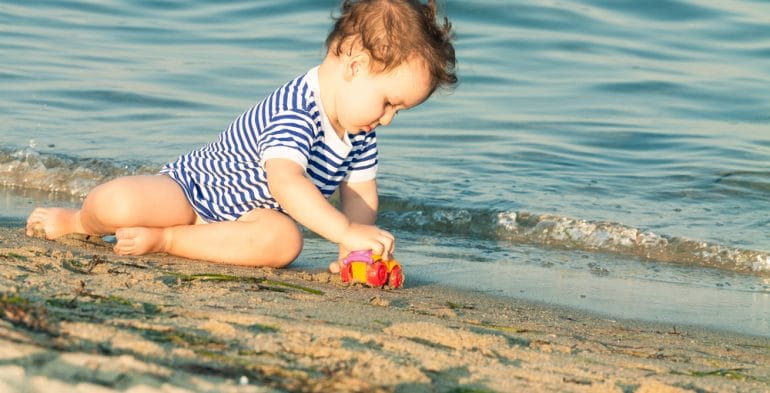
Do we really know all we need to know about protecting babies from sunstroke? We may think at first that it’s a simple matter and treat it instinctively, but we may be mistaken in ways we don’t expect and expose our babies to severe sunburn, perhaps even sunstroke.
What many don’t know is that babies’ skin, before they turn one, lacks the ability to defend itself by producing melanin, which protects the skin from sunburns. This is a very slow physiological process in babies, who can soon exposed to severe burns.
Here is some of the new knowledge on the topic:
- A cloudy summer or spring day does not mean your baby is safe from sunburn. Summer clouds are able to block 80% of the sun in the Arab world, no more. Be careful not to underestimate the sunlight filtering through the clouds directly onto your baby’s delicate skin.
- The ideal time for taking your baby swimming is between 7 and 10 in the morning and 5 and 7 in the evening. Everything else is a big risk and jeopardizes their health and the safety of their skin.
- It’s essential to use sunscreen with the maximum SPF, even if your baby is not with you in the swimming pool. Know, too, that the heat under the umbrella is no less harmful than direct sunlight.
- Know that sunscreen must be rubbed in to the forehead, eyelids, nose, ears, and even lips, in addition to the cheeks, neck, and rest of the body. It must also be reapplied after each dip in the water.
- If the day at the beach is hotter than usual, it’s all right for you to keep your child in wet clothes, even if they’re in the shade. In addition, make them drink water constantly to be sure they get enough.
- Finally, on an extremely hot day, dress your baby with care. When you head to the beach, a long-sleeved cotton shirt and pants will protect their little legs from potential burns; sunscreen is never enough for complete protection against UV radiation.








